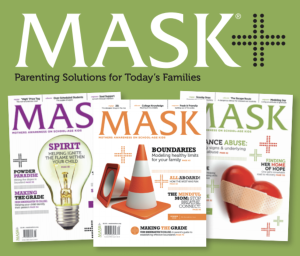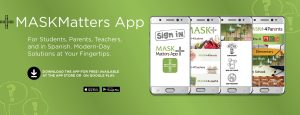
Talking About Tragedies
February 20, 2022
Themed Dinners That Will Spice Up Family Mealtime
February 22, 2022The college experience should be educational, fun and rewarding, but it can also be a challenging time for many students. It is often the first time kids are away from home and responsible for managing their own day-to-day activities. This includes navigating a rigorous class schedule, an abundant access to parties, potential participation in fraternity or sorority, and other extracurricular activities. Learning how to handle it all can lead to undue stress and anxiety.
Developmentally, 18 to 22 year olds haven’t matured enough to be able to make long-term decisions. For example, they may overlook the long-term benefits of studying for the short-term satisfaction of partying with friends. Despite their poor decision-making skills, however, students are very aware of the pressures being placed on them by parents, professors and mentors. These factors create a perfect storm, bringing together developmental insecurities with the stress and pressure of academics and parental expectations. Enter one of the most common solutions to this dilemma: prescription drugs, sometimes referred to as “smart pills” or “study buddies.”
Nearly one in four high school seniors admit to abusing prescription drugs, according to the National Institute on Drug Abuse (NIDA), and the college environment only further facilitates this kind of misuse. Young adults enrolled in college full-time are twice as likely to use stimulants for non-medical reasons than their peers, who are in college part-time or not at all, according to the National Council on Patient Information and Education (NCPIE).
Drug use on college campuses is hardly new. However, the use of prescription medications—most notably Adderall, a stimulant used to tread attention deficit disorder, and now medical marijuana—is capturing the attention of concerned health professionals and addiction specialists. Adderall and other stimulants like Ritalin top the list of prescription medications that are being sold, traded or otherwise illegally obtained on college campuses. The pressures to stay up and party with friends and achieve academically entice students to try these substances. According to NIDA, one in five students admits to using Adderall without an ADHD diagnosis.
Other commonly abused prescription medications include sedatives like Valium or Xanax and opioid analgesics like Vicodin or Percocet, reports the NCPIE. Students claim they use prescription drugs to improve grades, gain focus, reduce stress, ease nervousness and forget their problems.
What abusers fail to take into account are the risks, which include increases in blood pressure or heart rate, organ damage, addiction, difficulty breathing, seizure, heart attack, stroke and even death. Even more unsettling is that access to prescription medications becomes surprisingly easy when kids enter adulthood and doctors are free to prescribe without any parent consultation.
It is difficult to monitor a child who is away at school, but not impossible. Consistent and frequent communication is vital in preventing or discovering drug abuse. Remember, the best predictor of the future is the past. Parents who unwittingly overlook experimentation in high school may pave the way for a student’s willingness to say yes more easily when they get to college. Talking with your child early and often can make a difference. Visit them on campus, or FaceTime to help monitor how they are doing while away.
- Loss of appetite or fluctuation in weight
- A change in personal hygiene
- Significant increase or decrease in energy levels
- Dilated pupils
- Personality changes, moodiness
- Change in academic performance
By // Dr. Lisa Strohman
MASK the Parenting Magazine a quarterly publication providing solutions for Today’s Families.
The parenting manual offering solutions to the modern-day challenges families face. From Pre-K
through College stay up to date on the modern day issues families face.
Are you up to date on the issues your child is facing?
MASK Mothers Awareness on School-age Kids offers parenting solutions for today’s families. MASK tackles important topics – from drugs and alcohol to bullying and Internet safety -and gives students, parents and the community the knowledge and tools to manage these potential challenges.
Subscribe today! https://www.tools4teaching.com/product/mask-the-magazine/
Download and share the MASKmatters app now! Made for children, parents, teachers and in Spanish.
Have solutions at your fingertips
Available free on apple and google play links below
Apple https://apps.apple.com/us/app/maskmatters/id1482305692
Google Play
https://play.google.com/store/apps/details?id=com.maskmatters.maskmattersapp&hl=en_US&gl=US





